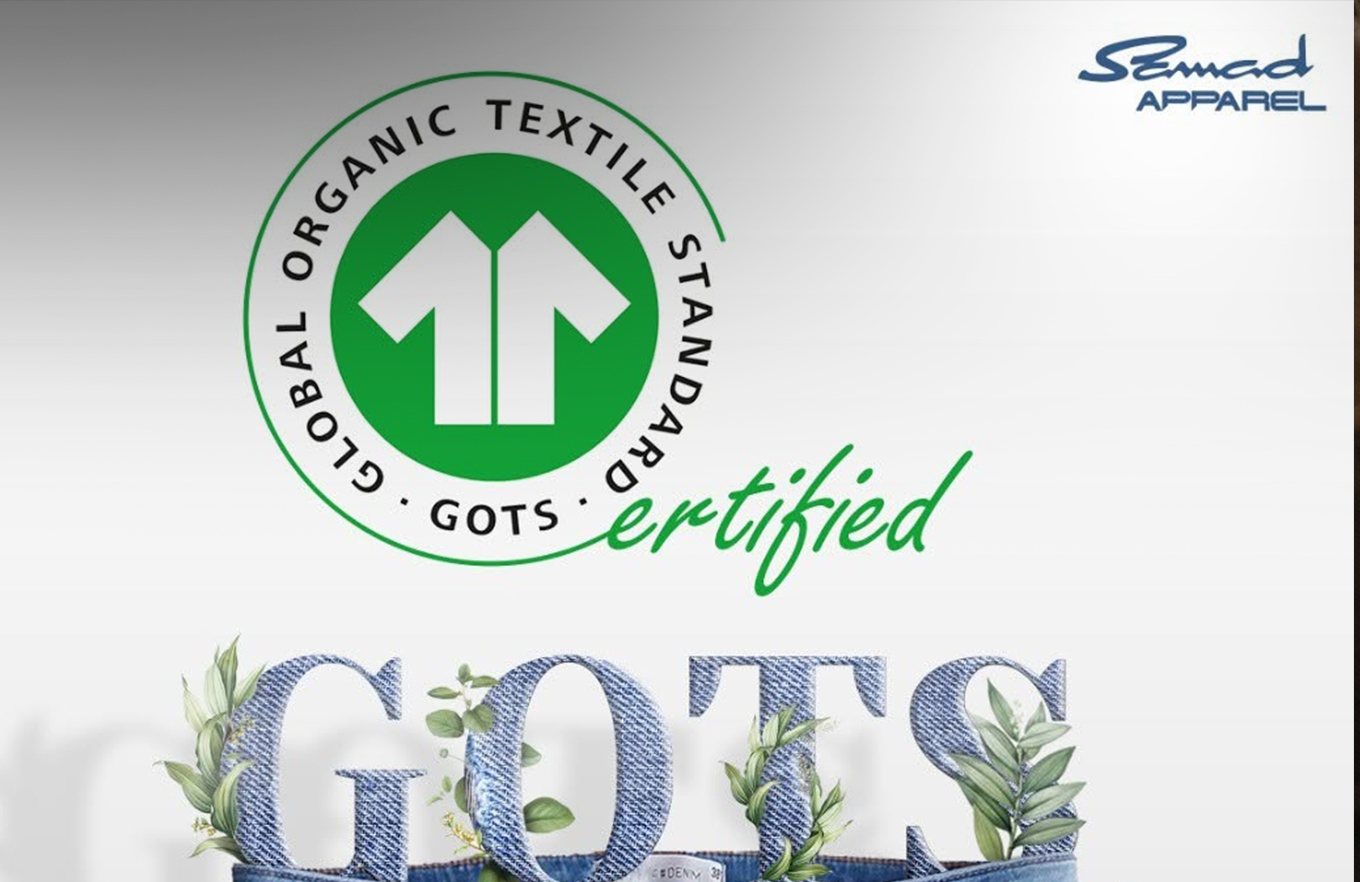November 6, 2025
Sustainable apparel has become a defining trend in modern fashion, reshaping how clothing is designed, produced, and consumed. From casual wear to denim, consumers and businesses are demanding environmentally responsible practices. For a denim jeans manufacturer, integrating sustainable apparel strategies is no longer optional; it’s a necessity to stay competitive and meet growing global expectations. Today, companies like Samad Group are leading the charge in producing denim with eco-friendly materials, reduced water usage, and innovative production techniques that minimize environmental impact.
Over the last decade, the concept of sustainable apparel has moved from niche to mainstream, with denim being one of the most scrutinized fabrics due to its resource-intensive manufacturing process. Forward-thinking manufacturers in Pakistan and beyond are adopting methods that reduce energy consumption, incorporate recycled fibers, and deliver premium quality products without compromising style or comfort. Samad Group has been particularly proactive, embedding sustainability into its denim production pipeline while maintaining high standards for durability and aesthetic appeal.
Sustainable apparel involves clothing that is ethically produced, environmentally responsible, and socially conscious. In denim manufacturing, this includes using organic cotton, recycled fabrics, and water-efficient dyeing techniques. The role of a denim jeans manufacturer today goes beyond simple production; it encompasses sourcing materials responsibly, optimizing supply chains, and ensuring that workers’ rights are respected.
Samad Group of Industries has pioneered initiatives that focus on sustainable safety clothing for industries and workwear made with recycled fabrics. Their approach demonstrates that sustainability in denim is feasible without inflating production costs or sacrificing product quality. For manufacturers, adopting sustainable apparel principles can improve brand reputation, attract eco-conscious consumers, and align with international regulations.
Sustainability also addresses one of the biggest challenges in denim production: environmental impact. Traditional methods consume enormous amounts of water and energy while generating chemical waste. By integrating sustainable apparel standards, manufacturers reduce their carbon footprint, lower production costs over time, and contribute to a greener planet. This not only benefits the environment but also strengthens consumer trust in the brand.
Several technological advancements and innovative methods are driving sustainable apparel adoption in denim manufacturing. Waterless washing technologies, laser finishing, and natural indigo dyes are transforming how denim is produced. These solutions allow denim jeans manufacturers to maintain authentic color and texture while drastically reducing water consumption.
Samad Group has invested in these innovations, ensuring that eco-friendly workwear production in Pakistan becomes both scalable and commercially viable. Their focus on research and development helps integrate recycled fabrics without compromising comfort, resilience, or style. Moreover, by optimizing production processes, the company reduces waste and energy use, setting benchmarks for other manufacturers in the region.
Sustainable apparel also includes life-cycle thinking. Samad Group emphasizes durability, ensuring that garments last longer and can be recycled efficiently. This creates a circular economy approach within denim manufacturing, where materials are reused, and production impact is minimized. Brands adopting these practices benefit from reduced environmental liabilities and enhanced market differentiation.

The rise of sustainable apparel presents tangible benefits for denim jeans manufacturers. These advantages include:
Brand Reputation and Consumer Loyalty: Consumers increasingly favor brands that are transparent about their production practices. By incorporating sustainable apparel principles, manufacturers build credibility and trust.
Cost Efficiency Over Time: Although sustainable techniques may require initial investment, innovations like waterless dyeing and recycled fabrics reduce operational costs long-term.
Global Market Access: Many international buyers prefer working with denim jeans manufacturers who adhere to eco-friendly standards. Companies like Samad Group have leveraged sustainable apparel practices to expand their reach globally.
Employee Engagement: Sustainable production methods create safer working conditions and encourage ethical labor practices, enhancing workforce satisfaction and productivity.
Environmental Responsibility: By minimizing waste, reducing chemical usage, and conserving resources, manufacturers contribute meaningfully to environmental preservation.
These benefits highlight why leading denim jeans manufacturers are prioritizing sustainable apparel as a core part of their business strategy.
While sustainable apparel offers significant advantages, denim manufacturers face challenges in its implementation. High initial costs for eco-friendly machinery, sourcing quality recycled fabrics, and training staff on sustainable production processes can be hurdles. Additionally, maintaining product consistency while introducing new techniques requires careful quality control.
Samad Group of Industries has addressed these challenges by creating a structured approach to eco-friendly workwear production in Pakistan. They focus on incremental adoption of recycled fabrics and sustainable processes, allowing for smooth integration without disrupting large-scale production. Their success demonstrates that strategic planning and commitment to sustainable apparel principles can overcome industry challenges.
Globally, sustainable apparel is no longer a niche market; it’s a mainstream expectation. From eco-conscious brands in Europe to North American retailers, buyers are actively seeking denim jeans manufacturers globally who demonstrate ethical and sustainable practices.
Trends include increased use of organic cotton, closed-loop dyeing systems, biodegradable packaging, and full traceability of supply chains. Samad Group has embraced these trends, producing denim with measurable environmental benefits. Their adoption of sustainable safety clothing for industries showcases their ability to merge innovation with tradition, setting new standards for workwear and casual denim alike.
Consumer behavior also plays a pivotal role. Shoppers are willing to pay a premium for sustainable apparel that aligns with their values. This trend encourages denim jeans manufacturers to innovate continuously, enhancing product quality while reducing environmental impact.

The future of sustainable apparel in denim manufacturing looks promising. With technological advancements, regulatory pressures, and growing consumer demand, manufacturers are compelled to adopt greener practices. Companies like Samad Group of Industries are leading this transformation, showing that sustainable denim production is viable, profitable, and scalable.
The next decade will likely see further innovations in recycled fabrics, eco-friendly dyes, and energy-efficient machinery. Denim jeans manufacturers investing in sustainable apparel now will benefit from stronger brand positioning, market expansion, and environmental stewardship.
Explore Samad Group’s sustainable apparel solutions today and partner with a leading denim jeans manufacturer delivering eco-conscious quality. Contact us for collaboration now.
Sustainable apparel is redefining denim jeans manufacturing globally. Companies like Samad Group demonstrate that it’s possible to combine eco-friendly production with high-quality garments. By adopting recycled fabrics, innovative technologies, and ethical practices, denim manufacturers can achieve long-term profitability while protecting the environment. The rise of sustainable apparel is not just a trend; it’s a global movement shaping the future of fashion.
Sustainable apparel refers to clothing produced ethically, using eco-friendly materials like recycled fabrics, minimizing water and energy use while ensuring fair labor practices.
Manufacturers adopt waterless dyeing, organic cotton, recycled fabrics, and optimized production processes to reduce environmental impact and enhance garment longevity.
Samad Group of Industries specializes in eco-friendly workwear production in Pakistan, offering sustainable safety clothing and innovative denim jeans manufacturing globally.